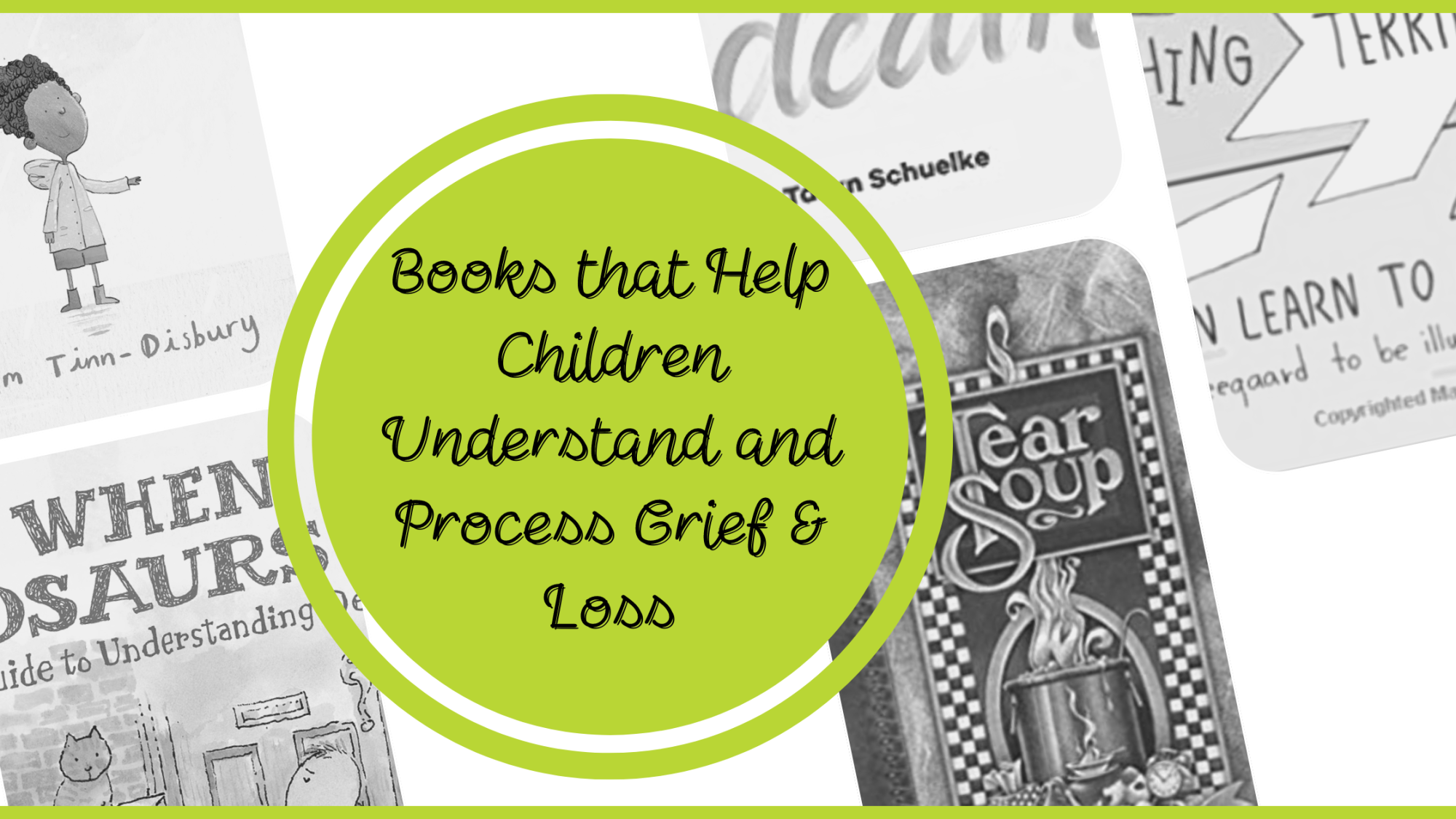Books that Help Children Understand & Process Grief & Loss
When loss occurs in a child’s life, it is no surprise that their grown-ups will face the following challenge: “How do you talk to a child about loss? Death? Grief?” These are topics that even we as adults struggle to communicate with each other about. Grief and loss are complex, so helping a child understand and process them in developmentally appropriate ways can be intimidating, but are also necessary.
Thankfully, there are several tools and resources available, including books. Below you will find a few recommendations to share with the children in your life, whether they are processing a death or another form of loss. They are organized by age range, starting with the youngest to the oldest.
Lost in the Clouds
By Tom Tinn-Disbury
(Ages 3 to 5)
Our main character, Billy, recently experienced the death of his mother and offers representation of what it’s like to be a grieving child. Notably, this book also shares how Billy sees his father experiencing his own grief while simultaneously supporting Billy when his feelings become big and overwhelming. Billy and his father observe and find comfort in how his mother is still present in their lives, even if she is no longer physically with them.
When Dinosaurs Die: A Guide to Understanding Death
By Laurie Krasny Brown and Marc Brown
(Ages 4 to 8)
From the creator of Arthur, this book covers several topics related to death. It has a table of contents so you can preview exactly what each section will talk about and navigate the book in the best way for your family. It answers important questions like, “What does dead mean?”, feelings about death, customs around death, and ideas about ways to remember someone who has passed. This age group often has a lot of questions about death, dying, living, and what happens after someone dies, and this book can be a great resource for you and for them.
A Kid’s Book About ______
(Ages 5 to 9)
A Kids Company About has several titles in their collection that cover difficult topics to both help adults talk about them with kids and to empower children. They acknowledge that children are people too and that they will experience some of the same things adults do, so they deserve to have books written for them to help them understand the world they live in. Typically, the author will share a personal story about the book’s topic, provide developmentally appropriate education, and validate what children may be feeling. Regarding grief and loss, they offer several titles on the topic including death, grief, suicide, divorce, school shootings, war, cancer, trauma, and more.
Tear Soup: A Recipe for Healing After Loss
By Chuck DeKlyen and Pat Schwiebert
(Ages 8 to 12)
The story of Tear Soup follows “an old and somewhat wise woman” called Grandy after she and her husband have experienced a loss. We don’t know exactly what kind of loss it is, and the book acknowledges that several different life experiences can be losses. Making tear soup serves as a metaphor for grief and how it is an ongoing process that different people navigate in their own ways. Grandy shares her process, how others respond to her and support her, and how, over time, it becomes less overwhelming.
When Something Terrible Happens
By Marge Eaton Heegaard
(Ages 9 to 12)
Marge Easton Heegaard, a retired clinical social worker and art therapist, has published several books to assist children in processing and coping with major life events. What makes her books unique is that the children get to illustrate the pages themselves. She provides prompts for what to draw so that kids may process their grief with their art. While the title above is more general, she also has books that cover the specific grief of when someone dies, when parents separate or divorce, when a family is impacted by addiction, and when someone is seriously ill.
Children experience loss and grief just like adults do; their process will just look different depending on their developmental level. It is important to support your child in this rather than avoiding the topic or shutting it down. Children understand far more than we sometimes expect, and they need your help to regulate their emotions and comprehend what is happening to them. You are capable, and there are books and other resources, such as therapy, available to help.

